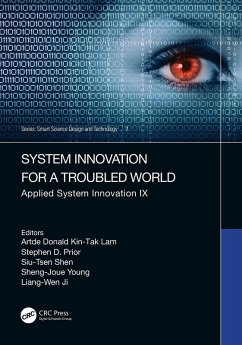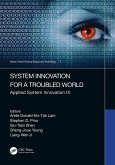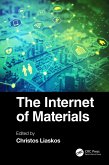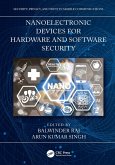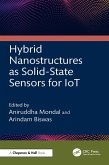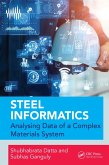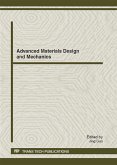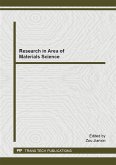System Innovation for a World in Transition (eBook, PDF)
Applied System Innovation IX. Proceedings of the 9th International Conference on Applied System Innovation 2023 (ICASI 2023), Chiba, Japan, 21-25 April 2023
Redaktion: Lam, Artde Donald Kin-Tak; Ji, Liang-Wen; Young, Sheng-Joue; Shen, Siu-Tsen; Prior, Stephen D


Alle Infos zum eBook verschenken

System Innovation for a World in Transition (eBook, PDF)
Applied System Innovation IX. Proceedings of the 9th International Conference on Applied System Innovation 2023 (ICASI 2023), Chiba, Japan, 21-25 April 2023
Redaktion: Lam, Artde Donald Kin-Tak; Ji, Liang-Wen; Young, Sheng-Joue; Shen, Siu-Tsen; Prior, Stephen D
- Format: PDF
- Merkliste
- Auf die Merkliste
- Bewerten Bewerten
- Teilen
- Produkt teilen
- Produkterinnerung
- Produkterinnerung

Hier können Sie sich einloggen

Bitte loggen Sie sich zunächst in Ihr Kundenkonto ein oder registrieren Sie sich bei bücher.de, um das eBook-Abo tolino select nutzen zu können.
System Innovation for a World in Transition: Applied System Innovation IX aims to provide an integrated communication platform for researchers from a wide range of topics including information technology, communication science, applied mathematics, computer science, advanced material science, and engineering.
- Geräte: PC
- ohne Kopierschutz
- eBook Hilfe
- Größe: 52.6MB
![System Innovation for a World in Transition (eBook, ePUB) System Innovation for a World in Transition (eBook, ePUB)]() System Innovation for a World in Transition (eBook, ePUB)52,95 €
System Innovation for a World in Transition (eBook, ePUB)52,95 €![The Internet of Materials (eBook, PDF) The Internet of Materials (eBook, PDF)]() The Internet of Materials (eBook, PDF)36,95 €
The Internet of Materials (eBook, PDF)36,95 €![Nanoelectronic Devices for Hardware and Software Security (eBook, PDF) Nanoelectronic Devices for Hardware and Software Security (eBook, PDF)]() Nanoelectronic Devices for Hardware and Software Security (eBook, PDF)47,95 €
Nanoelectronic Devices for Hardware and Software Security (eBook, PDF)47,95 €![Hybrid Nanostructures as Solid-State Sensors for IoT (eBook, PDF) Hybrid Nanostructures as Solid-State Sensors for IoT (eBook, PDF)]() Hybrid Nanostructures as Solid-State Sensors for IoT (eBook, PDF)52,95 €
Hybrid Nanostructures as Solid-State Sensors for IoT (eBook, PDF)52,95 €![Steel Informatics (eBook, PDF) Steel Informatics (eBook, PDF)]() Shubhabrata DattaSteel Informatics (eBook, PDF)52,95 €
Shubhabrata DattaSteel Informatics (eBook, PDF)52,95 €![Advanced Materials Design and Mechanics (eBook, PDF) Advanced Materials Design and Mechanics (eBook, PDF)]() Advanced Materials Design and Mechanics (eBook, PDF)138,95 €
Advanced Materials Design and Mechanics (eBook, PDF)138,95 €![Research in Area of Materials Science (eBook, PDF) Research in Area of Materials Science (eBook, PDF)]() Research in Area of Materials Science (eBook, PDF)138,95 €
Research in Area of Materials Science (eBook, PDF)138,95 €-
-
-
Dieser Download kann aus rechtlichen Gründen nur mit Rechnungsadresse in A, B, BG, CY, CZ, D, DK, EW, E, FIN, F, GR, HR, H, IRL, I, LT, L, LR, M, NL, PL, P, R, S, SLO, SK ausgeliefert werden.
- Produktdetails
- Verlag: Taylor & Francis
- Seitenzahl: 390
- Erscheinungstermin: 27. Dezember 2023
- Englisch
- ISBN-13: 9781003860891
- Artikelnr.: 69634854
- Verlag: Taylor & Francis
- Seitenzahl: 390
- Erscheinungstermin: 27. Dezember 2023
- Englisch
- ISBN-13: 9781003860891
- Artikelnr.: 69634854
- Herstellerkennzeichnung Die Herstellerinformationen sind derzeit nicht verfügbar.
Science & Engineering
Communication Science & Engineering
Computer Science & Information Technology
Computational Science & Engineering
Electrical & Electronic Engineering
Mechanical & Automation Engineering
Green Technology & Architecture Engineering
Innovation Design & Creative Design
Industrial Design & Design Theory
Cultural & Creative Research
Applied Mathematics
Internet & IOT technology
Digital & Art, Cultures, and Crafts
User Interface Design & User Experience Design
Advanced Decision-Making Architecture via AI, DEA, and MCDM for Future Development
AI applications of Engineering and Education
Energy and Applied Engineering
Science & Engineering
Communication Science & Engineering
Computer Science & Information Technology
Computational Science & Engineering
Electrical & Electronic Engineering
Mechanical & Automation Engineering
Green Technology & Architecture Engineering
Innovation Design & Creative Design
Industrial Design & Design Theory
Cultural & Creative Research
Applied Mathematics
Internet & IOT technology
Digital & Art, Cultures, and Crafts
User Interface Design & User Experience Design
Advanced Decision-Making Architecture via AI, DEA, and MCDM for Future Development
AI applications of Engineering and Education
Energy and Applied Engineering
